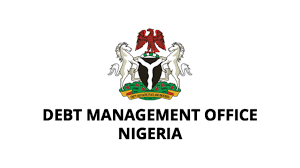Nigeria spent a total of N13.12 trillion on servicing its debts in 2024, a big jump from the N7.8 trillion it paid in 2023. This is a 68 per cent increase, according to fresh data from the Debt Management Office (DMO).
This figure is higher than what was planned in the 2024 budget. The Federal Government had budgeted N12.3 trillion for debt servicing, but ended up spending more. The increase shows how the country’s rising debt is putting more pressure on its finances.
Looking ahead, the Federal Government has already set aside N16 trillion for debt servicing in the 2025 budget. This shows that the cost of managing Nigeria’s debts is still expected to go up.
For 2024, the country spent N5.97 trillion on servicing domestic debts. This is a 14.15 per cent increase from the N5.23 trillion paid in 2023. This rise is mainly due to higher interest rates and increased borrowing within the country.
For foreign debts, Nigeria spent $4.66 billion, which is equal to about N7.15 trillion using the exchange rate of N1,535.32 per dollar. This is a huge jump from the N2.57 trillion spent in 2023. The increase is linked to global interest rate hikes and the fall in the value of the naira, which made it more expensive to pay back dollar loans.
Despite the big rise in foreign debt servicing, domestic debt still makes up a large part of Nigeria’s total debt payments. In 2024, the country spent N5.97 trillion on local debts, which is N1.59 trillion more than what was paid in 2023.
Most of this domestic debt servicing went into Federal Government Bonds. These bonds alone cost the government N4.69 trillion in 2024. That’s about 78.6 per cent of the total domestic debt payments and an increase from N3.66 trillion in 2023.
Nigeria Treasury Bills followed with N747.15 billion, a sharp increase from N326.12 billion in the previous year. This shows a 129 per cent rise and highlights the growing cost of short-term borrowings.
Other payments include N6.38 billion for Federal Government Savings Bonds, N158.43 billion for FGN SUKUK rentals, and N2.18 billion for FGN Green Bonds, which remained stable. The government also paid N265.86 billion on promissory notes, slightly lower than the N277.16 billion paid in 2023.
On the international side, commercial creditors got the largest chunk of foreign debt payments. A total of $1.47 billion went to them, with Eurobond holders alone receiving $1.15 billion.
Multilateral creditors like the International Monetary Fund (IMF) and the World Bank received $2.62 billion in total. The IMF got the largest share, $1.63 billion, followed by the World Bank’s International Development Association, which got $663.23 million.
Bilateral debt payments totaled $570.67 million. The biggest receiver was the Exim Bank of China, which got $362.60 million. France’s AFD received $66.45 million, while Germany’s KfW got $35.91 million.
Meanwhile, Nigeria’s 36 states and the Federal Capital Territory reduced their total external debt from $4.61 billion in 2023 to $4.80 billion in 2024. Lagos State remains the highest debtor with $1.17 billion, followed by Kaduna at $0.63 billion and Edo at $0.38 billion. Jigawa has the lowest external debt at $23.34 million.
Despite the heavy debt servicing, Vice President Kashim Shettima has said the government is working to reduce borrowing. Speaking at a budget workshop in Abuja, Shettima, through Dr. Tope Fasua, said the current administration is focusing on reducing low-value loans and increasing revenue from other sources.
He stated that the 2025 budget deficit of N13 trillion, out of a N55 trillion budget, represents the lowest deficit in years at 23.6 per cent. According to him, reforms under President Bola Tinubu are beginning to yield results, with more states vowing not to borrow in 2025 and focusing on internally generated revenue.
The Vice President expressed hope that the country’s economic situation will improve if the current reforms continue. He also said that better budgeting, reduced waste, and targeted spending are key to moving Nigeria forward.
